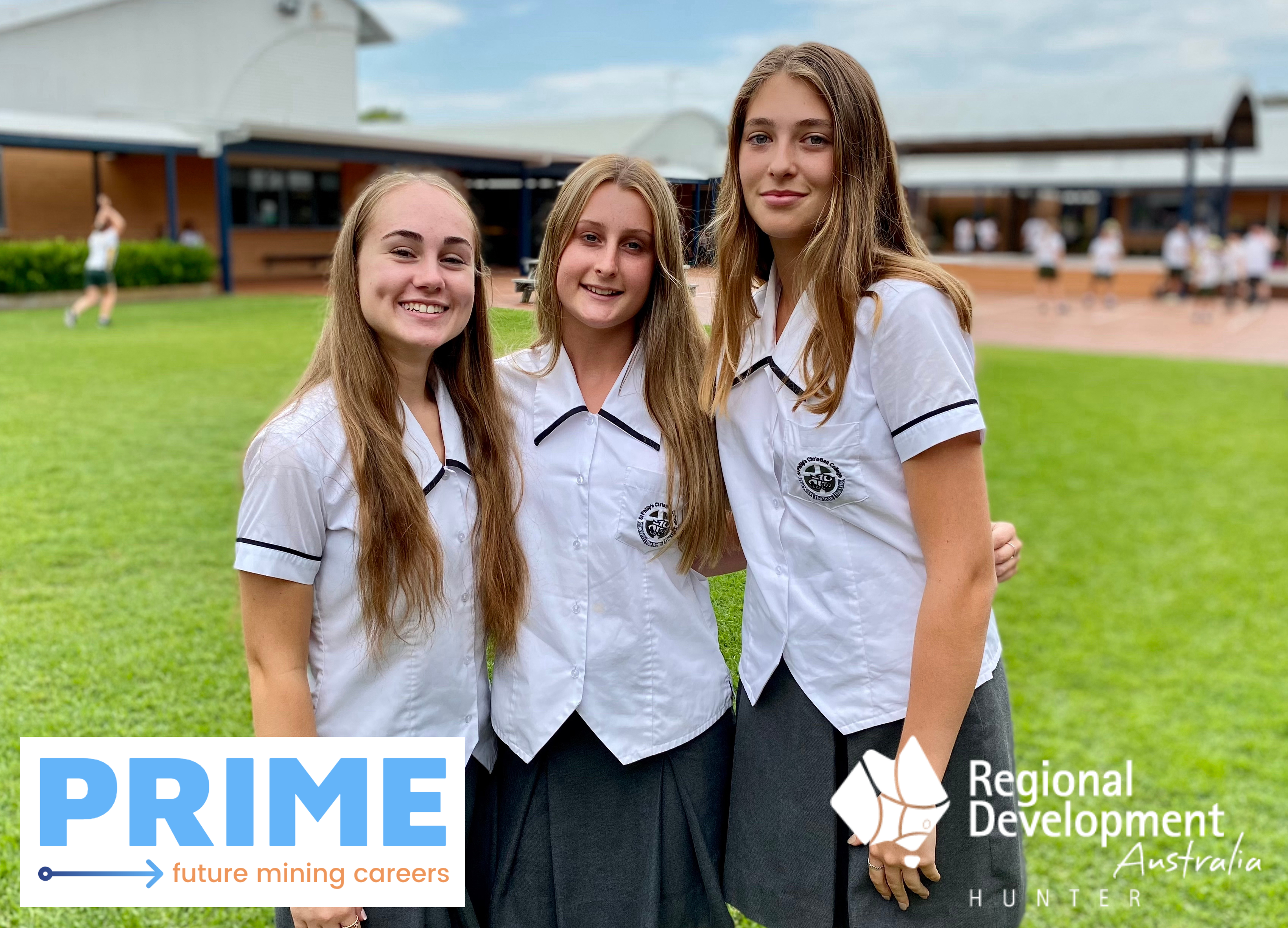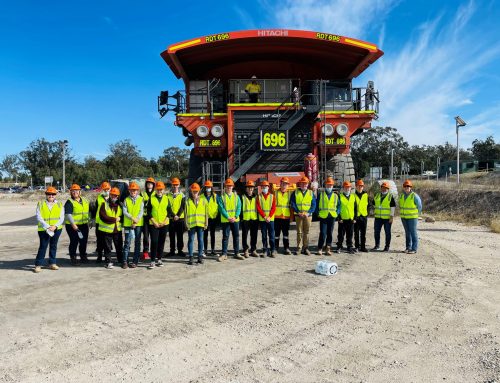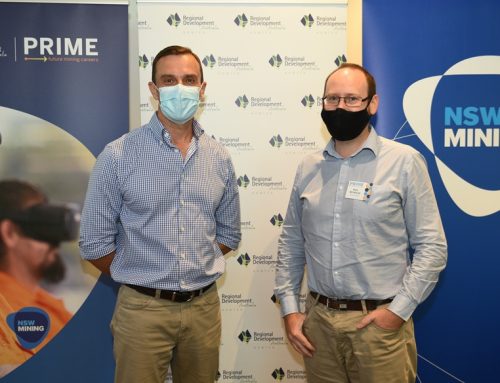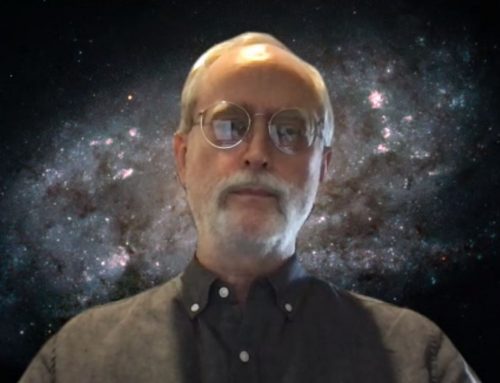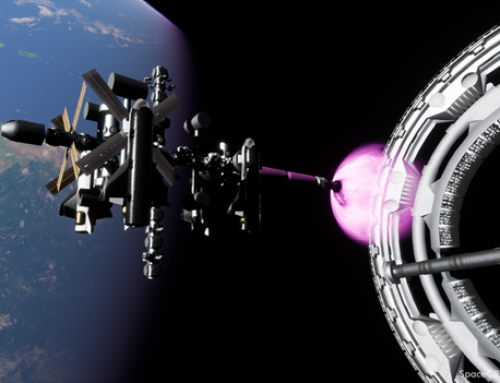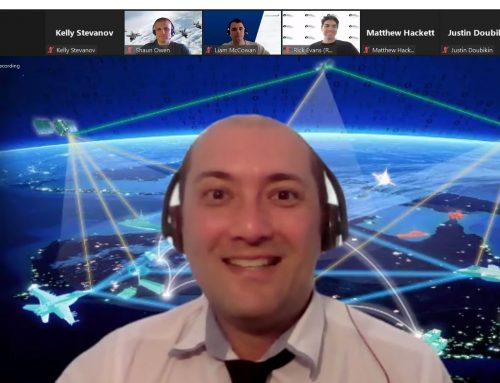Feature Image: SPCC Port Stephens students Adana, Saskia and Alannah
PRIME STUDENTS POSE SOLUTIONS TO MINING PROBLEMS
by Kate O’Mara
In February 2020, Regional Development Australia (RDA) Hunter and NSW Minerals Council (NSWMC) commenced a new partnership to boost high school students’ awareness of the NSW mining industry and its varied career opportunities.
PRIME (Pathways to Resource Industry and Mining Employment) is a two-year partnership that helps secondary students in the mining-strong Hunter region better appreciate how science, maths and geography subject-matter applies across the lifecycle of a mine. It also aims to build students’ awareness of the breadth of skills and jobs required to drive a mining operation.
As part of the high school-based program, delivered in 18 Hunter schools in 2020 with plans to include an additional 15 in 2021, students used Oculus Virtual Reality systems (in a COVID-safe way) to put themselves inside a virtual mine where they learnt about the life-cycle of a mine – including various operational streams. This opportunity opened their eyes to a series of big-picture issues encountered in mining operations which they were invited to analyse and devise possible solutions for.
Economies of Scale; Water as a Finite Resource; Transportation and Logistics; Sustainability across the Mine Lifecycle; and Social License were the issues identified by Hunter-based global mining operations and to which students pondered resolutions.
Students studying science and careers subject areas at Avondale College, Callaghan College Wallsend Campus, Irrawang High School, Maitland High School, Medowie Christian School, San Clemente High School and St Philips Christian College (SPCC) Port Stephens presented innovative and original solutions to the five problems in the form of videos, PowerPoint presentations, posters and reports.
Maitland High School students, Georgia, Isabella and Lily suggested repurposing mine tailings to address Sustainability and Recycling; battery recycling was posed by Medowie Christian School students, Anthony, Will and Thomas to help with Environmental Change and Recycling; and Danny, Cameron and Alex from San Clemente High School suggested Mining Efficiencies could be achieved through e-waste recycling.
A Minecraft presentation by Adana, Saskia and Alannah from SPCC Port Stephens demonstrated an integrated above and below ground transport system to address Transport and Logistics; students at Avondale College developed various solutions to their individual areas of interest across the five problem areas; while Callaghan College students: Charoula, Amber, Kruze, Lucy, Casey, Maka, Ebony, Kade, Vishnu, Leo, Ryan and Tobias tackled Water as a Finite Resource, suggesting such solutions as water atomisation, desalination and wastewater recycling.
Felix from Irrawang High School addressed Economies of Scale, suggesting wireless communications, drones and collision avoidance systems; Christian and Maddie suggested cyber trucks, improved sensors and automated collector drones as possible solutions to the same problem. Aaron presented ideas to capture and re-use water while Jack, Riley, Harley and Riley suggested using lower quality water to address Water as a Finite Resource and Jaii posed alternate energy sources and optimising resource extraction and storage to address Sustainability of a Mine Site.
Representatives of RDA Hunter and NSWMC viewed the proposed solutions and complimented students on their research and ingenuity.
“NSW Minerals Council is very pleased to be working with RDA Hunter on PRIME. It is an innovative way to raise awareness of the mining industry and mining careers amongst young people. The project focus areas are current and relevant and a great way to get students thinking about solutions to industry challenges and the range of careers needed to maintain optimal mining operations,” said NSWMC CEO, Mr Stephen Galilee.
“With their teachers’ guidance, students were able to demonstrate their understanding of the big-picture environmental and operational issues affecting mines and recognised the importance of developing practical ways to address them.” Mr Galilee continued.
Donna Chapman-Hardy and Josh Noble, teachers at Maitland High School said, “Maitland High School has enjoyed being part of PRIME this year. The delivery of content via the Oculus system captured students’ interest and the opportunity to contribute to real-world solutions via the project component both challenged and rewarded them. I’m really proud of the effort our students put in to PRIME and grateful to RDA Hunter and NSW Minerals Council for facilitating our participation.”
Mr John Turner, Chair of RDA Hunter said the mining sector continues to be a large employer and important driver of economic activity in the Hunter region.
“We’re delighted to be partnering with NSW Mineral Council’s to deliver the two-year PRIME project. It reinforces the important contribution mining makes in the Hunter and highlights the career opportunities that will continue to exist in the sector well into the future.”

